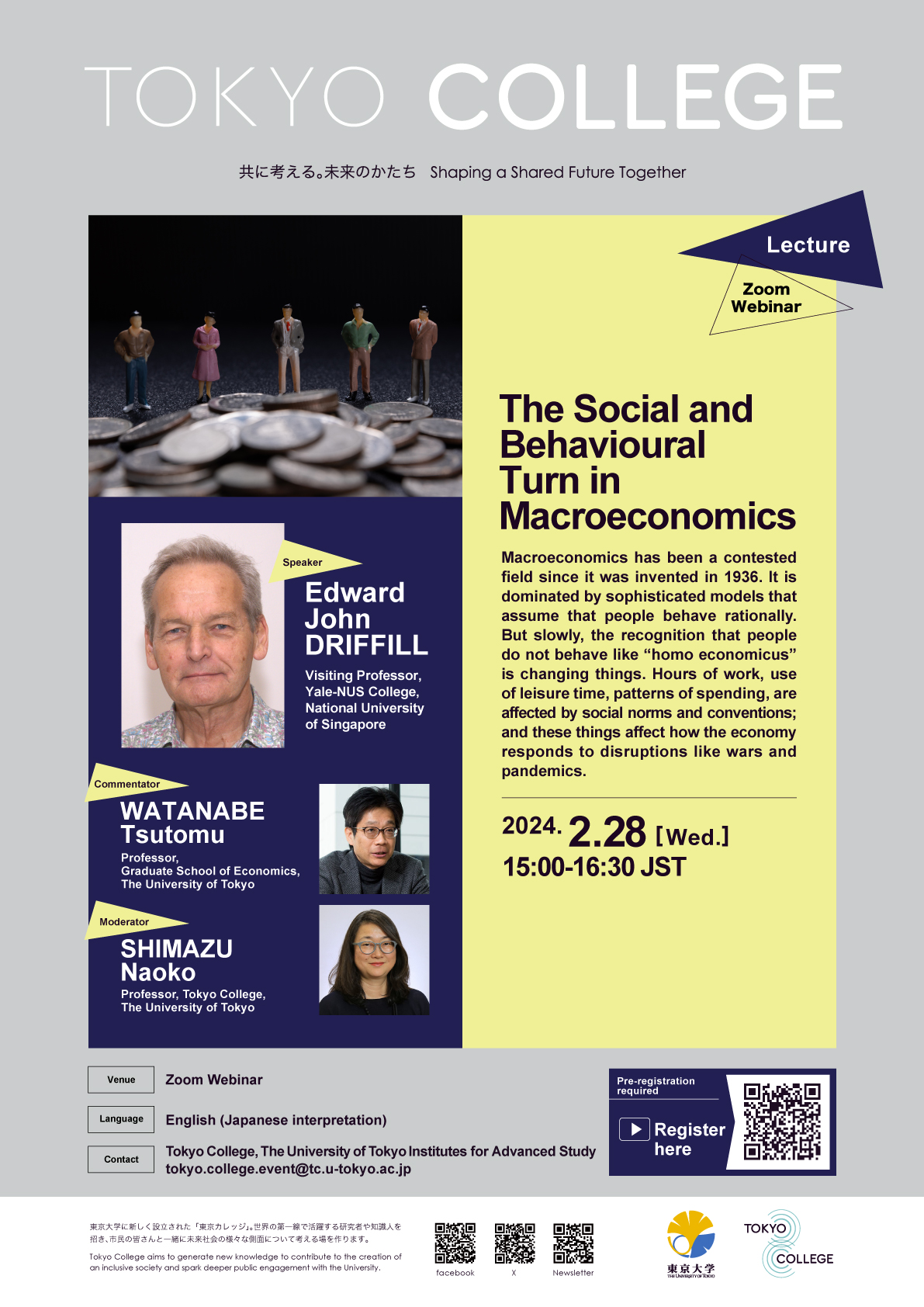The Social and Behavioural Turn in Macroeconomics (Lecture by Prof. Edward John DRIFFILL)

| Date(s) | Wednesday, 28 February 2024, 15:00-16:30 JST |
|---|---|
| Venue |
Zoom Webinar (Register here) |
| Registration | Pre-registration required |
| Language | English (Japanese interpretation) |
| Abstract |
Macroeconomics has been a contested field since it was invented in 1936. It is dominated by sophisticated models that assume that people behave rationally. But slowly, the recognition that people do not behave like “homo economicus” is changing things. Hours of work, use of leisure time, patterns of spending, are affected by social norms and conventions; and these things affect how the economy responds to disruptions like wars and pandemics. |
| Program |
Lecturer Edward John DRIFFILL (Visiting Professor, Yale-NUS College, National University of Singapore) Commentator WATANABE Tsutomu (Professor, Graduate School of Economics, The University of Tokyo) Moderator SHIMAZU Naoko (Professor, Tokyo College, The University of Tokyo) |
| Speaker Profile |
Professor Driffill was a member of the Council of the Royal Economic Society (2000-2005) and on its Executive Committee (2000-2004). He has also been Specialist Advisor to the House of Lords Select Committee on the European Union, Subcommittee A on Economic Affairs, for inquiries into the Euro and the Stability and Growth Pact. |
| Organized by | Tokyo College, The University of Tokyo |
| Contact | tokyo.college.event@tc.u-tokyo.ac.jp |
















